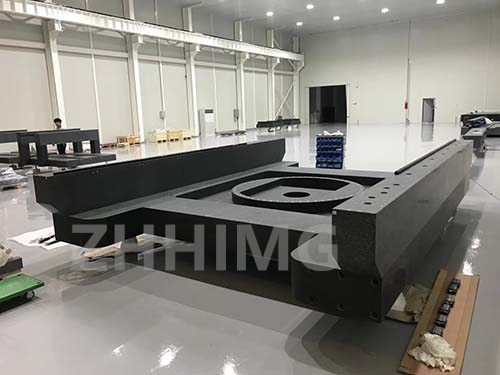Granite is a popular material used in the manufacturing of machine tools, particularly in the construction of mineral casting lathes. When comparing mineral casting lathes to traditional cast iron lathes, there are significant differences in structural design and manufacturing flexibility that impact customization and innovative design of machine tools.
Structural Design:
Mineral casting lathes are constructed using a composite material made of natural granite aggregates and a low-viscosity epoxy resin. This results in a homogeneous, solid structure that offers excellent vibration damping properties. In contrast, traditional cast iron lathes are made from a dense, rigid material that is more susceptible to vibration and distortion.
Manufacturing Flexibility:
The use of mineral casting in lathes allows for intricate and complex designs to be easily achieved. The material can be molded into various shapes and configurations, providing greater flexibility in the manufacturing process. Traditional cast iron lathes, on the other hand, are limited in terms of design flexibility due to the constraints of working with a rigid material.
Impact on Customization and Innovative Design:
The differences in structural design and manufacturing flexibility between mineral casting lathes and traditional cast iron lathes have a direct impact on the customization and innovative design of machine tools. Mineral casting lathes offer the ability to create highly customized and innovative designs that are not easily achievable with traditional cast iron lathes. This allows for the development of machine tools that are tailored to specific applications and performance requirements.
Furthermore, the vibration damping properties of mineral casting lathes contribute to improved precision and accuracy in machining processes, leading to enhanced performance and quality of the end products. This level of customization and innovation is crucial in meeting the evolving demands of modern manufacturing industries.
In conclusion, the use of granite-based mineral casting in lathes presents a significant departure from traditional cast iron lathes in terms of structural design and manufacturing flexibility. This difference has a profound impact on the customization and innovative design of machine tools, paving the way for advanced and tailored solutions in the manufacturing sector.
Post time: Sep-06-2024

